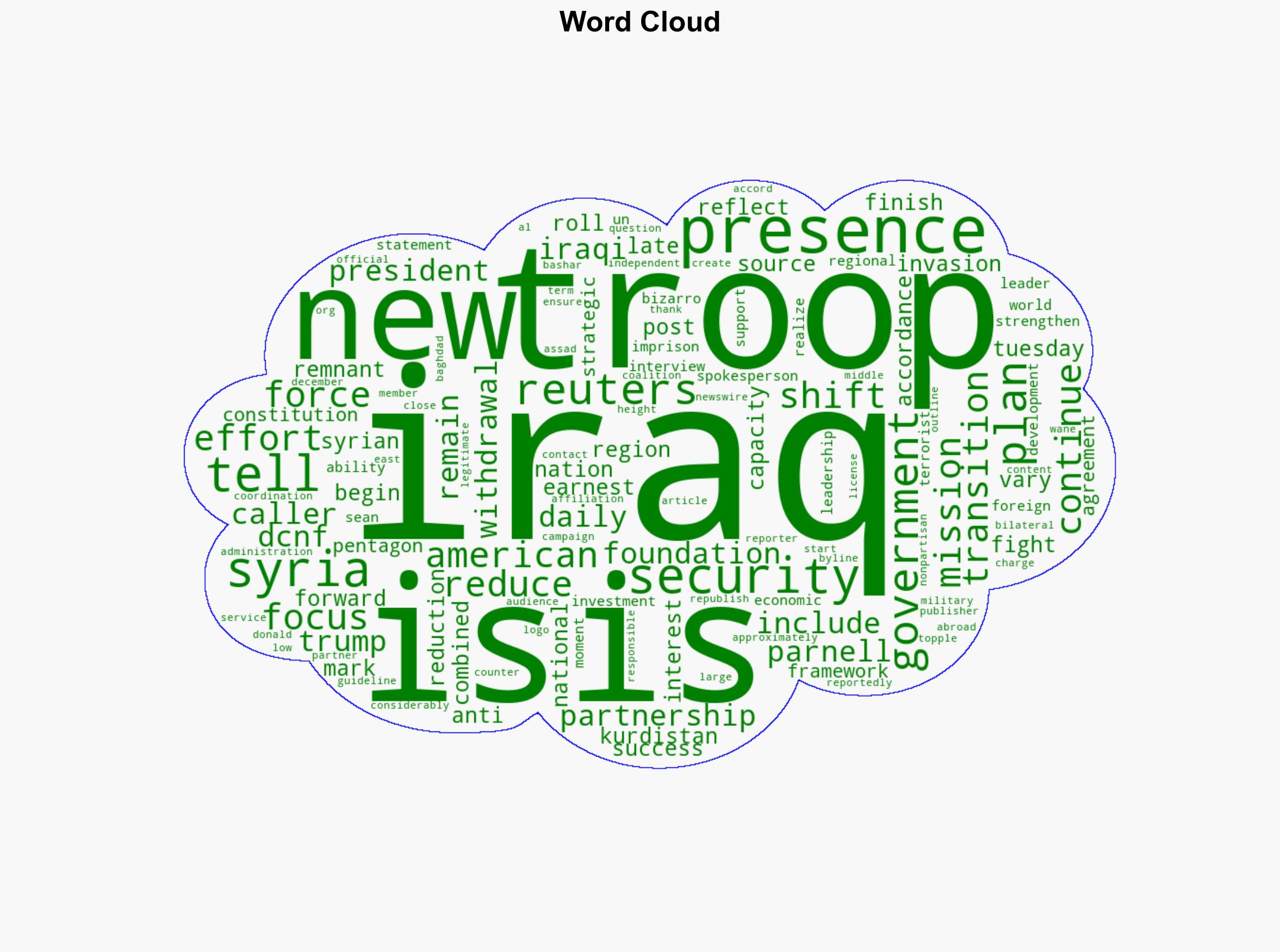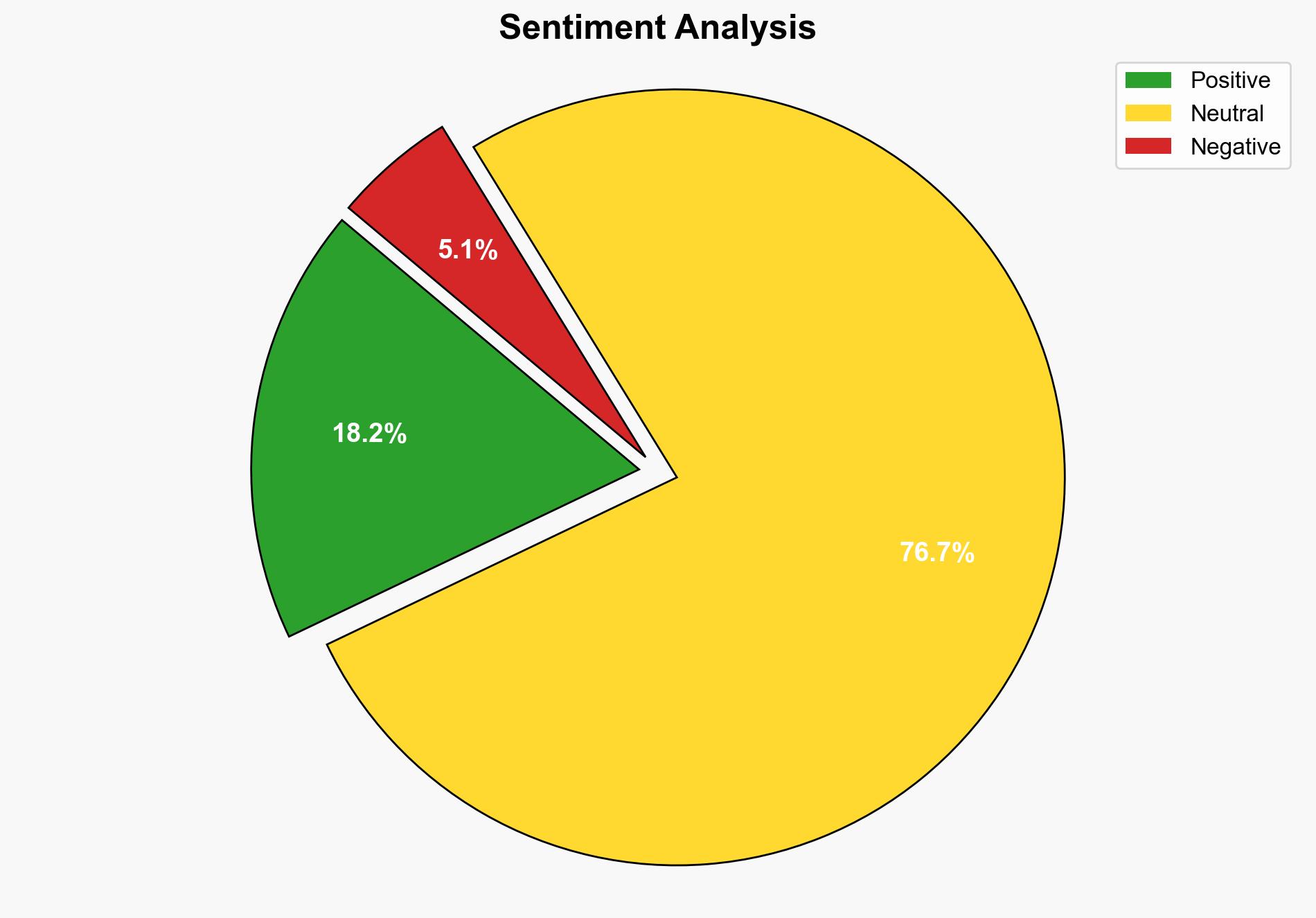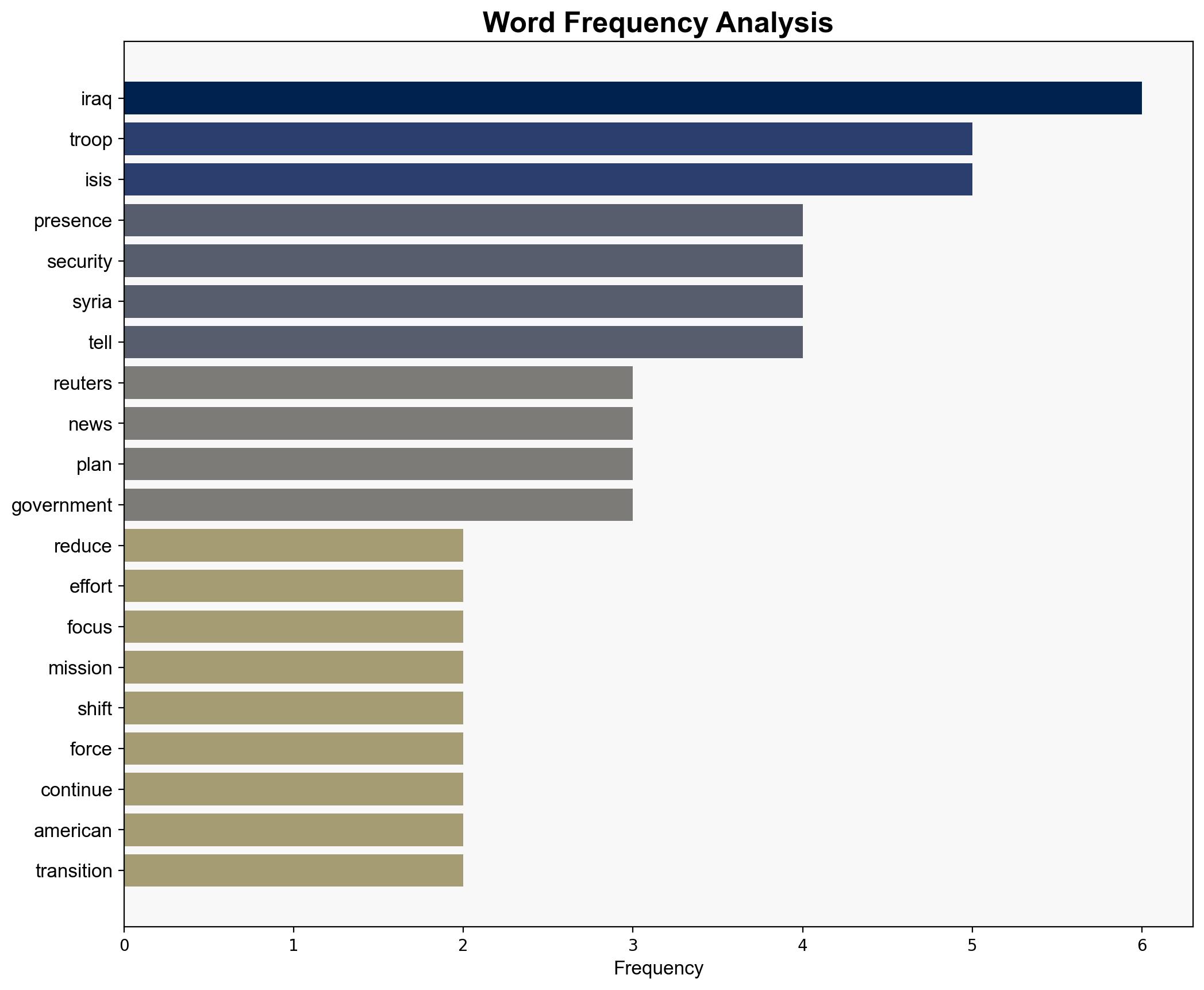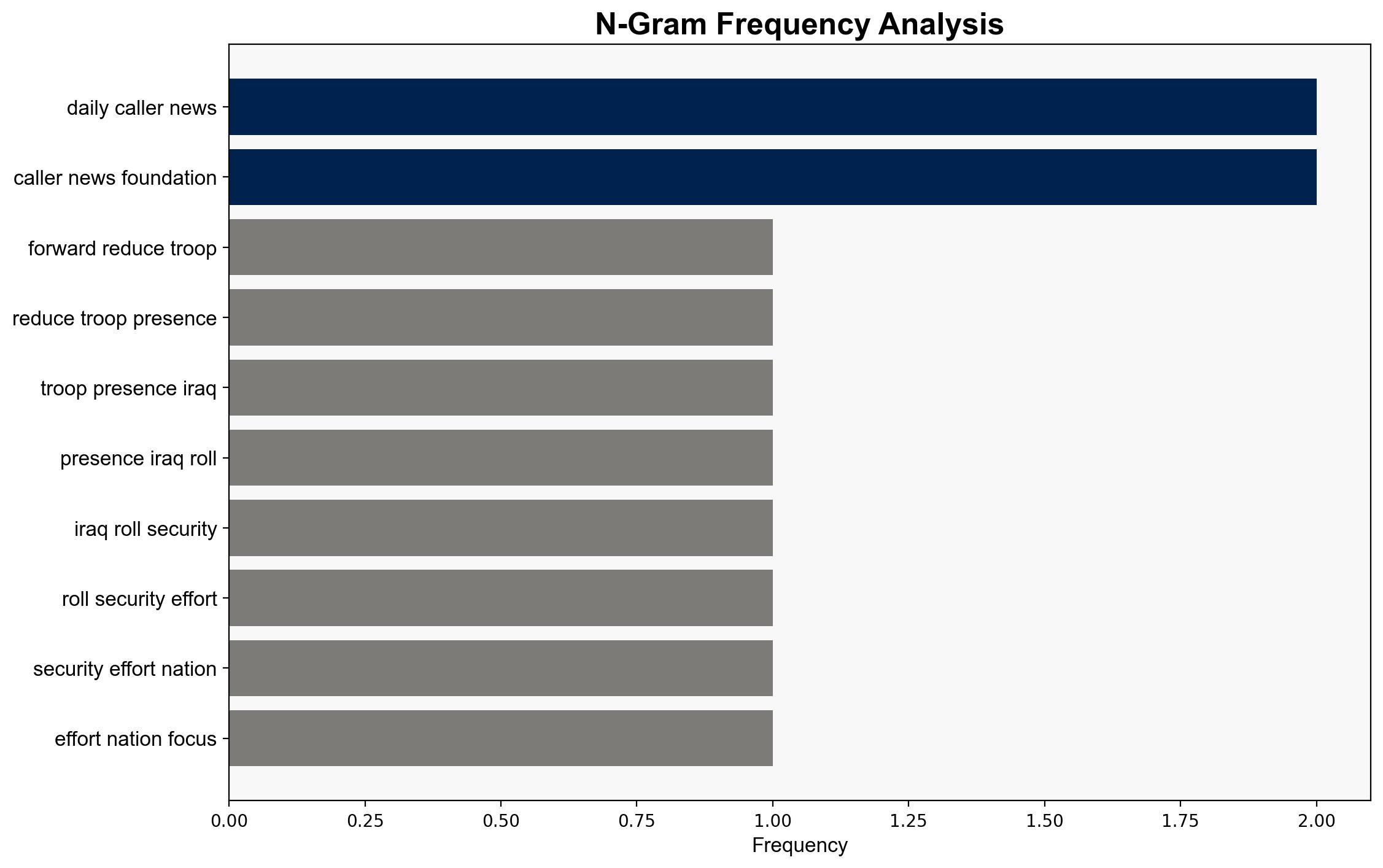US Moving Forward With Troop Reductions In Iraq – The Daily Caller
Published on: 2025-10-01
Intelligence Report: US Moving Forward With Troop Reductions In Iraq – The Daily Caller
1. BLUF (Bottom Line Up Front)
The most supported hypothesis is that the US troop reduction in Iraq is primarily driven by a strategic shift to focus on counter-ISIS operations in Syria and a broader realignment of military resources in the Middle East. Confidence Level: Moderate. It is recommended that the US maintains robust intelligence and diplomatic channels with Iraq to ensure continued stability and counter-terrorism effectiveness.
2. Competing Hypotheses
1. **Hypothesis A**: The troop reduction is a strategic decision to reallocate military resources towards counter-ISIS operations in Syria and to strengthen the US-Iraq security partnership in line with national interests.
2. **Hypothesis B**: The troop reduction is primarily a political maneuver by the US administration to fulfill domestic promises of reducing military presence abroad, with less emphasis on strategic realignment.
Using ACH 2.0, Hypothesis A is better supported by the evidence provided, including statements from Pentagon spokesperson Sean Parnell and the strategic framework agreement with Iraq. Hypothesis B lacks direct evidence in the source text but remains plausible given the political context.
3. Key Assumptions and Red Flags
– **Assumptions**: Both hypotheses assume that the US has a coherent strategy for counter-ISIS operations and that Iraq can maintain security with reduced US presence.
– **Red Flags**: The lack of detailed information on the specific troop numbers and roles being reduced raises questions about the operational impact. Additionally, the potential for political bias in the source text should be considered.
4. Implications and Strategic Risks
– **Geopolitical Risks**: A reduced US presence could embolden regional adversaries or lead to increased influence from other powers, such as Iran.
– **Security Risks**: There is a risk of ISIS resurgence if local forces are unable to maintain pressure without US support.
– **Economic Implications**: Stability in Iraq is crucial for economic development and foreign investment, which could be jeopardized by security vacuums.
5. Recommendations and Outlook
- Maintain strong intelligence-sharing and training programs with Iraqi forces to mitigate security risks.
- Engage diplomatically with regional allies to ensure a coordinated approach to counter-terrorism.
- Scenario Projections:
- Best Case: Successful transition with enhanced Iraqi security capabilities and stable regional influence.
- Worst Case: Security vacuum leading to increased ISIS activity and regional instability.
- Most Likely: Gradual reduction with ongoing US support maintaining a stable security environment.
6. Key Individuals and Entities
– Sean Parnell (Pentagon spokesperson)
– President Donald Trump
– Bashar al-Assad
7. Thematic Tags
national security threats, cybersecurity, counter-terrorism, regional focus




